How Do Air Purifiers Work?
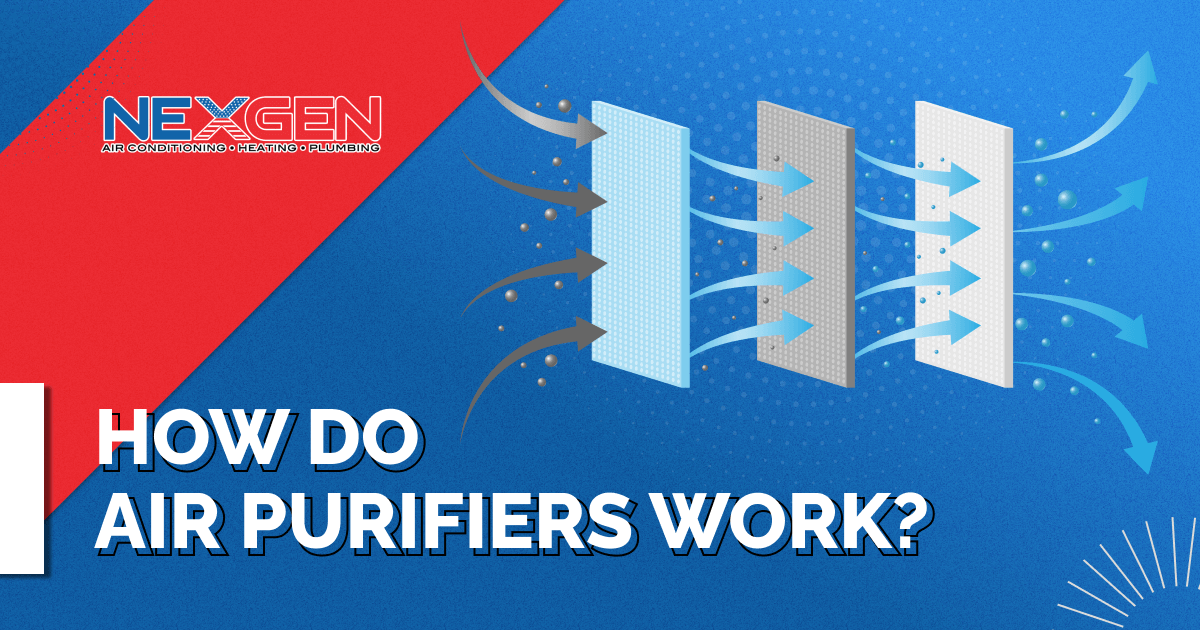
While an HVAC system offers some air filtration, it doesn’t filter out every particle of dust, pollen, or pet dander. Mold spores, smoke, odors, and other pollutants and potential toxins may exist in your indoor air, where they can be many times more concentrated than outdoors. An air purifier can remove these and improve comfort, help alleviate allergies, and reduce the risk of respiratory and other illnesses. In this article, we will answer the question, “How do air purifiers work?” to show you their potential benefits.
Function of an Air Purifier
An air purifier is an appliance that sucks in air via a fan and re-circulates it in a cleaner form. It can have one or multiple filters. These filters can be made of paper, fiberglass, or mesh. Some filters must be replaced as they fill up, while others are reusable and washable (however, they require substantial maintenance, but are effective at removing larger particles).
Filtration is an important aspect of air purifiers, but a purifier is much more than a filter. Some models act as air sanitizers as well. For example, air particles can be neutralized when ultraviolet light (UV) filters are integrated into the unit. UV light can destroy bacteria, mold, and other biological impurities. Without a special filter or sanitizing system, an air purifier will struggle to trap particles much smaller than 5 microns in size (high-efficiency filters can remove particles as small as 2.5 microns).1
*While coronavirus (COVID-19) particles measure about 0.1 microns, they’re usually bound to water droplets, aerosols, and other larger particles, so can be removed by air purifiers.
Air Purifier Limitations
A standard air filter struggles to remove volatile organic compounds (VOCs), radon, and other gases. Off gassing from household cleaning products, paints, and adhesives isn’t captured by most air purifiers either. That’s unless a High Efficiency Particulate Air (HEPA) filter is used. It’s made of fine fiberglass threads and is pleated and sealed in a frame made of plastic or metal.
HEPA filters capture particles of various sizes, including VOCs, ozone, carbon monoxide, nitrogen dioxide, and sulfur dioxide when used in combination with UV light and air scrubbers.
But an air purifier won’t remove or neutralize particles stuck to walls (and other hard surfaces) or sitting on carpeting, furniture, bedding, and other soft surfaces.
When asking, “How do air purifiers work?” and deciding on the best one for your home, it’s also important to consider the following:
- Air Purifier Size: Each model is rated for a specific room size. If you choose a unit for a larger area than you have, it can be run at a lower setting to reduce noise.
- Clean-Air Delivery Rating (CADR): Aim for at least a CADR of 300, but a rating of 350 or higher is very effective at removing smoke, dust, and pollen.
- Association of Home Appliance Manufacturers (AHAM) Verification: The AHAM certifies various types of appliances to ensure their performance, safety, and efficiency.
Types of Air Purifiers Nexgen Offers
Nexgen offers three different types of air purifiers. These include filter-based systems with electrically charged flat filters to capture large particles, extended media filters that remove dust and debris, and ultraviolet filters. In addition, we offer duct-based air purification systems designed to filter impurities from air as it passes through air ducts. Lastly, our stand-alone systems install in a closet or attic and are connected to your HVAC system via air intakes. Our licensed technicians can perform any installation for you, while your budget and air quality needs are addressed as part of our X protects standard.
To learn more or have an X-purification system installed in your home, contact Nexgen HVAC & Plumbing at 833-729-9735 today!
Source:
- https://www.livescience.com/how-do-air-purifiers-work
NexGen is a trusted name in plumbing, air quality, and HVAC in Palm Desert, Anaheim, Riverside, Los Angeles, and other parts of the area. We’re also committed to giving back to the community through our Project X program and Military Appreciation Program (MAP). As part of MAP, we donate four systems a year to veterans to show our appreciation for their service. In this article we will discuss our recent AC donation to veteran John Engles.
About John and Robin
John Ingles is an 86-year-old veteran of the Korean War, he was drafted to in 1953. He later served as a paratrooper after extensive training. Engles is described by his neighbor as kind, loving, and giving with a lot of integrity and honor.
Robin, John’s neighbor, has lived in Desert Hot Springs for 22 years and has known John for nine years. She’s been a caretaker for her disabled sister for three years. One day, she realized how hot it was in John’s house, where it could be over 100°, and began the search for an air conditioner repair company. In the area, daytime summer temperatures can exceed 125°.
John’s AC Troubles
The heat in John’s home was so bad that Robin was prepared to call 911 or take him to the hospital. After waiting two weeks for a repair company to visit, and trouble getting financing, John felt like there was nowhere to turn. That is until Robin noticed the NexGen signs on the freeway.
After contacting NexGen, Ruben, the service manager in Palm Desert, sent a crew out for a diagnostic. They determined that the HVAC system in John’s home needed to be replaced. Ruben mentioned the Project X program after learning John Engles was a veteran. He then sent through the paperwork and John was approved.
Install manager Ernie Perez led NexGen’s installation of a furnace, coil, condenser, and other equipment for use during any season. A complete system was installed in one day. In a video, he also explained how devoted he and NexGen are to helping out the community to ensure people are cared for.
John Engles too expressed his gratitude, saying, “I would like to thank NexGen and ProjectX for my new system. I owe my life to them and thank you immensely.”
About Project X
Project X is a program in which someone can be nominated to be a recipient of NexGen’s services. It helps support local and larger projects that protect/honor the community and people in it, and that contribute to improvement. The company already tries to make HVAC service more affordable with flexible financing. Project X adds a new dimension by helping serve those most in need. To nominate a recipient, NexGen provides a form online in which their name, contact information, military branch and ID, and background story can be submitted.
Contact NexGen Today
NexGen is an industry leader in heating and cooling system installation and repair in Southern California. Also trusted for plumbing, drain cleaning, and air purification solutions, we are devoted to serving the community through the Project X program and making sure all customers get the best care through our X Protects services. We’re also known for competitive pricing, professional installation, and free, friendly estimates. A lifetime warranty is provided with our brand as well. For more information about our company and services, call 888-966-9045, or feel free to book your appointment now online.
Which type of HVAC unit is right for my home in Orange County?
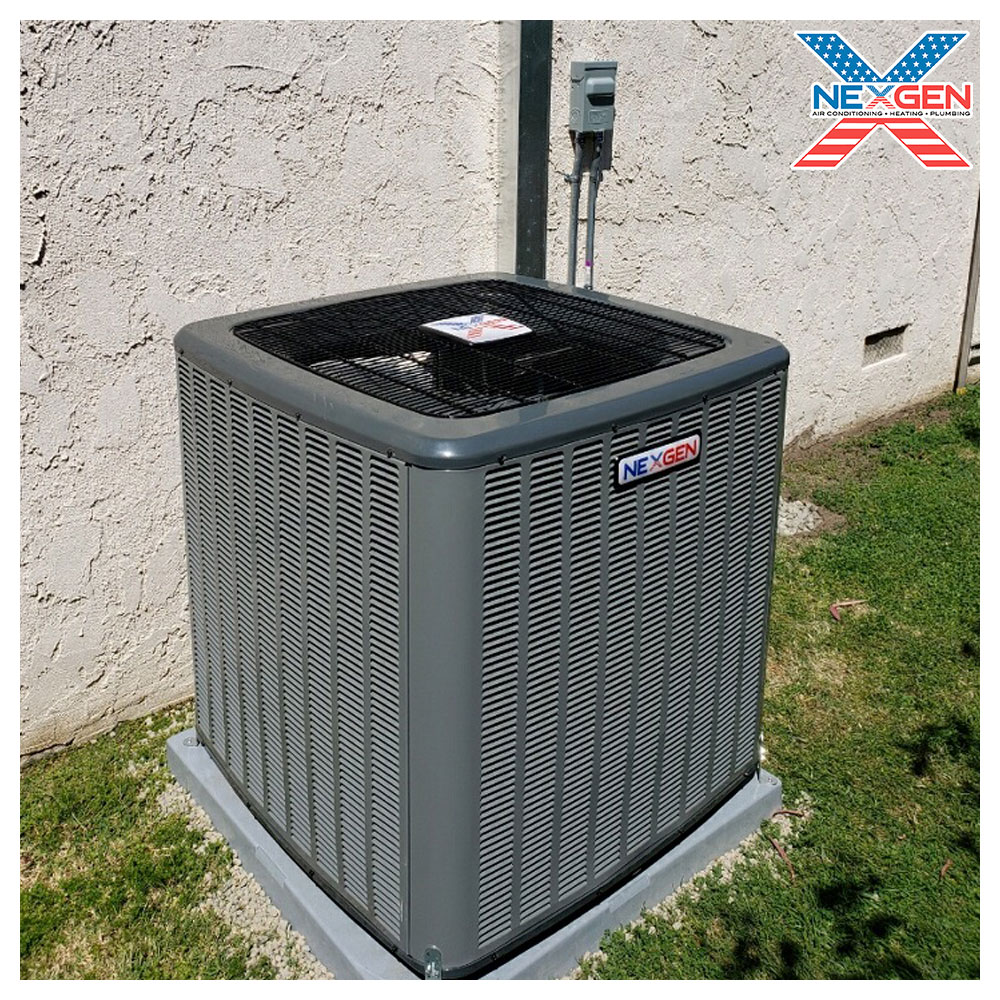
Are you tired of the high energy bills every month? If yes, it is important to ensure the optimal performance of your air conditioning unit.
Although Orange County does not have high temperatures, it is still essential for residents to have the perfect HVAC unit for their homes.
Types of Air Conditioning Units
It is important to learn about the various types of air conditioning units available to make the right choice. Currently, they are four different types available. All come in different sizes and specifications to suit various home and business designs.
They include:
Heating and air conditioning split system
– having an outdoor unit having the compressor and condenser, and an indoor unit containing the blower and evaporator coil.
Hybrid heat pump system
– uses a heat pump together with a furnace to burn natural gas, fuel oil or propane to cool or heat your home.
Ductless mini-split system
– it gives solutions to spaces where the other types are not compatible.
Packaged air conditioning and heating system
– containing the condenser, compressor, and evaporator all in a single unit.
Air conditioning repair in Orange County
Most homeowners in Orange County face difficulty when deciding whether to repair or replace their AC unit. The last thing anybody wants is to make a wrong decision on this type of investment – several options need to be weighed before making this decision.
One of the most important is the lifespan of the conditioning unit. According to a US Environmental Protection Agency, an AC unit should last for an average of 15-20 years, a heat pump for 16 years, and a furnace for 18 years.
How to Choose
Use these guidelines to make your decision:
1. Safety concerns
The most important thing to consider is safety. If the heating system presents a kind of hazard, then it should be replaced, especially if the repair is going to be temporary and very expensive.
If your furnace has a cracked heat exchanger, for example, it could result in carbon monoxide leaking into your home, and could potentially be fatal. Don’t take this risk. But things like faulty wiring and stuck valves may just require a simple repair.
2. Its lifespan
The next thing to consider is the age of your cooling unit. In some cases, a licensed and trained technician will write down the date of installation on the unit. If not, check the chamber door for the identification plate containing the model and serial numbers. Use these numbers to ask the customer service for the manufacture date.
If your unit is older than 20 years, it doesn’t necessarily mean you must replace it. The average life expectancy dates are average, meaning the unit can still work.
3. Cooling and heating effectiveness
If the cooling or heating system is faulty, it will not cool or heat your home effectively. A good sign to know if the system is flawed is when the unit is not cooling or heating the house at the temperatures you set. Older units will have this difficulty, you might notice if some rooms are colder or warmer than others.
4. Repair costs
If you are still unsure and realize your unit is under 15 years old, then it may just need a repair. It is no doubt that AC units will need some repairs once in a while. But if your system regularly requires repairs, it can eventually cost you more than having a new unit installed. Other signs that indicate you need an AC repair in Orange County are:
More dust accumulates in your home
It makes a strange noise
You smell unusual odors
An increase in your electricity bill
Call NexGen Today
Our expertise and commitment to customer satisfaction make us the leading HVAC company in Southern California. To learn more about our equipment, services, and protection plan,
book an appointment online or call
888-277-0415.
Signs Your Air Conditioning Needs Replacement
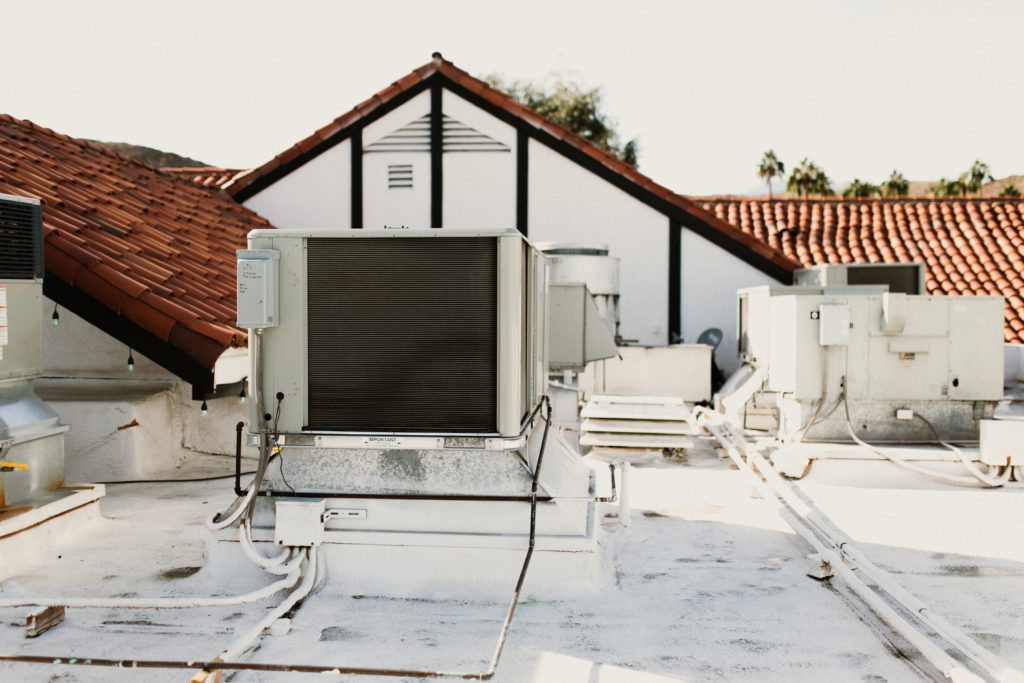
Anaheim is known for its great attractions and wonderful weather, two of the many reasons people love to call Anaheim home. The Southern Californian residents are fortunate enough to have warm weather for the majority of the year, but we also have our very hot days. Just like anyone else, Anaheim residents fight back against the scorching weather by blasting their air conditioners. But one negative factor that comes with using air conditioning…. costly power bills. But an outdated air conditioner can cost more than just money, as it also can pollute the air that your family is breathing.
Your air conditioner is one of the most important parts of your home, so it is quite smart to keep track of how efficient and effective you’re A/C is working as time rolls on. It can become very obvious that something is wrong with your air conditioner because it will have to work very hard to output the same amount of air that it normally could. However, sometimes the damage is a little harder to spot. Here are some things to keep an eye out when considering your air conditioning unit:
15 Years or Older
If your air conditioner receives routine maintenance and is still under the 10-year mark, then you may be okay for a few more years! But if your air conditioner unit is 15 years or older, it may be time to consider your options for a new unit. Newer units are much more efficient and will save you money in the long run on your power bills. All ground unit air conditioners in the United States, since 2005, are required to have a minimum SEER (Seasonal Energy Efficient Ratio) of 13. You can see the SEER rating for your unit by looking at the Energy Guide sticker on your air conditioning unit. It is not uncommon for an older air conditioner to have a SEER in the single digits.
You will see that it would not take long for a new air conditioner to pay for itself just through the vastly reduced energy consumption. And, you can even buy an air conditioner with a SEER over 20 for maximum efficiency! Although a new air conditioner can be a big investment, so can the costs of continuing to repair and operate an old, inefficient unit. Energy Star recommends upgrading to an energy-efficient unit if your current central air conditioner is 10 or more years old.
Lacking Air Flow
Have you noticed a big decrease in the amount of air that certain rooms in your home are receiving? Or maybe you are not receiving air at all in your upstairs rooms? Both of these problems can occur because the air conditioner may be on its last few days. But these also can be an effect of a buildup in your air vents. The best possible solution would be to contact your local experts at NexGen Air Conditioning, Heating and Plumbing. We will make sure to lay down your options for whatever the issue may be, trust the job to our HVAC technicians. Repair costs aren’t the only factor that should be weighed when deciding between repairing once again or finally making the jump to that new air conditioner. New air conditioners will also improve airflow in your home, and a new system can also do a better job controlling dirt, pollen, dander, and other debris that can cause allergies as well as other health problems.
Increases in Power Bills
One tell-all sign is that of an increased power bill! This is because your air conditioner will have to work much harder to produce the same amount of air it normally would. Normally it would take 25 minutes to cool down your home but now it takes almost an hour and a half… this will most definitely cause your bill to skyrocket! Upgrade to new equipment, and you can reduce your bills for years to come. A HUGE warning sign for your unit’s effectiveness and efficiency is an increase in your power bill cost & this is usually the biggest factor that pushes people over the edge.
Temperature
Have you noticed that your home fluctuates in temperature pretty frequently? Does it take a while to get your home up to proper temperature? These are two of many signs that your air conditioner may be needing a replacement. From low Freon levels to a broken compressor, any number of issues could be a factor. This also could be a sign that your air conditioner may be outdated and not have enough power to cool the entire house. Sometimes an air conditioner is improperly fit when originally selected for the home, this can cause an issue with cooling down certain rooms. Occasionally the final straw pushing a homeowner over the edge is the high cost of a big repair that may be needed. When this does happen it is best to weigh the advantages of moving to a new air conditioning unit versus paying for a repair. Sometimes it may be smarter to move on!
Replacing your air conditioner is a big investment for your home, but wasting money on repairs won’t solve any long-term problems that an old unit has. You will not regret investing in a new piece of equipment, your home will finally feel comfortable on those hot summer nights and your power bill will see a drop in price. But don’t let the high costs of investing in a new unit scare you away! Depending on the type of unit installed, a tax rebate can cover up to 30 percent of the cost of a new HVAC system. Also, check with your utility company if they offer any rebates and incentive programs for energy-efficient heating and cooling systems.
Call NexGen Today
Our expertise and commitment to customer satisfaction make us the leading HVAC company in Southern California. To learn more about our equipment, services, and protection plan,
book an appointment online or call
888-277-0415.
Why does ice form in a ductless mini split AC?
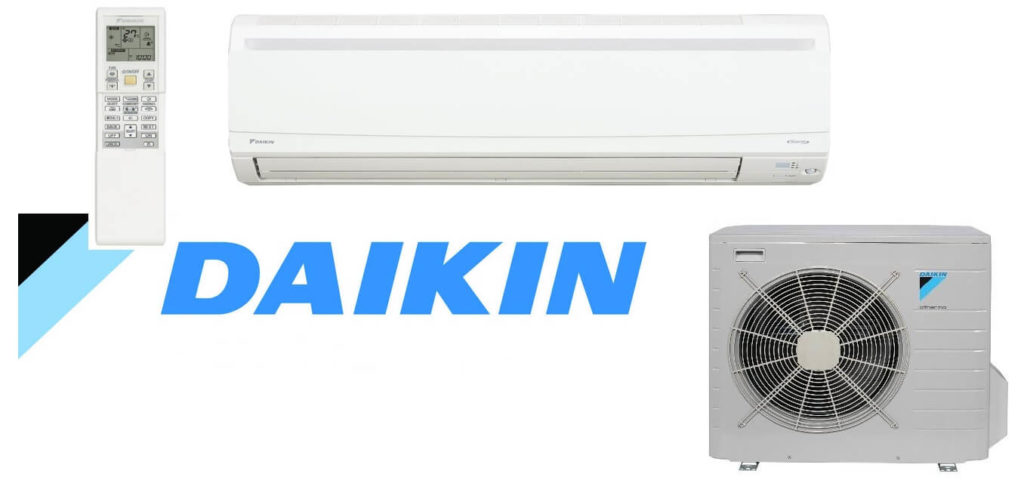
If your air conditioner does not seem to be working as well as it should, your natural first reaction is to go out and look at the unit to see if there is anything you can do quickly to correct the problem. Of course, you cannot assess the situation unless you know what you are looking for. For instance, if you see ice forming on the condenser coil or anywhere else on the air conditioning system, you will know you found the likely source of the problem.
Low Refrigerant Levels
Ice can form in your air conditioner for a number of reasons. The most common one is that your refrigerant levels are low. The reason a lack of refrigerant can cause this ice buildup is due to what refrigerant itself is. Refrigerant in part transfers heat from the indoor coil and once warm moves to the outside coil where it dissipates heat into that coil. This cools yours home, when there is not enough refrigerant it begins to move more quickly through the system. This means that the heat transfer is not happening. Since this refrigerant is contained in a closed system, a deficiency in refrigerant means that there must be a leak somewhere in that system. Only a certified professional can refill your refrigerant and determine where the leaks are in the system to make the necessary repairs.
Lack Of Airflow
Another reason that ice can develop in your air conditioner is because the air is not flowing fast enough through the system and across the coils. This can happen because of a problem with the fan or because there is an actual physical impediment to the air flow. This lack of airflow is most commonly caused by a buildup of dirt between the fins of the coil. Regardless of the reason, the ice will form because without adequate air flow the condenser coils will get too cold.
These coils are typically kept just above freezing by the constant flow of air across them. When the air passes by them at this temperature, the moisture from the air condenses on the surface of the coil. But because the coil is not quite freezing, the water then runs down into a collection pan. When the coil is too cold, however, the moisture from the air will freeze on the coil before it can run off.
This ice actually manages to insulate the coil and keeps it from properly cooling the air or removing any additional moisture. If left unattended, the ice in your central air conditioning system can cause real damage to the unit. Plus, it is not allowing the air conditioner to do its job and cool your house down. So, if you notice any amount of ice at all beginning to form on any part of your air conditioner, be sure to call for professional service right away.
Call NexGen Today
Our expertise and commitment to customer satisfaction make us the leading HVAC company in Southern California. To learn more about our equipment, services, and protection plan,
book an appointment online or call
888-277-0415.
HVAC Basic
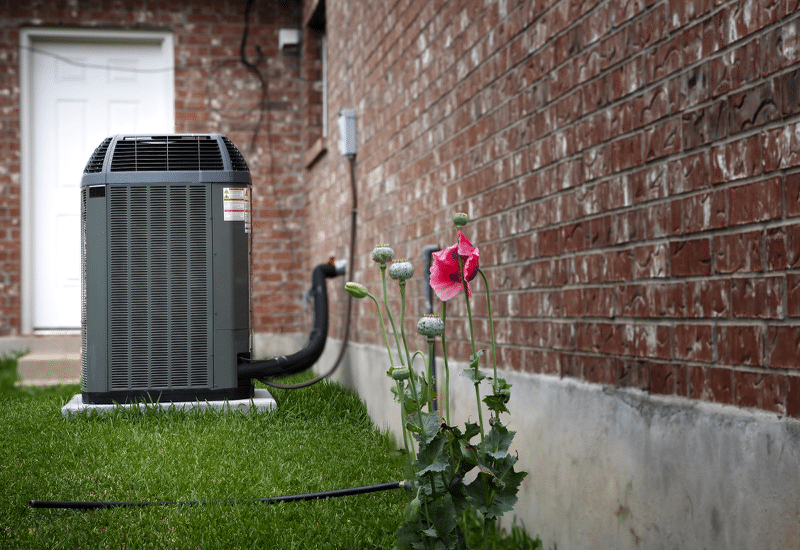
Whether keeping your home cozy in the winter or cooling your office in the summer, HVAC systems are a part of everyday life.
Your HVAC (heating, ventilation, and air conditioning) system is the system or combination of system used to provide a comfortable temperature in your home and maintain high levels of air quality. As a homeowner, it is important to understand the key roles your HVAC system plays and how they operate to get the most out of your system.
Heating
The heating component of your HVAC system provides a warm climate for your home in the cooler months of the year. Today, the most popular type of heating system is the forced air system, but many homes also use radiant heat systems and geothermal heating systems, among others. In all the systems, heat is created at a central source and distributed through the home via different means.
Forced Air
These systems use a furnace to heat the air and then disperse it through the house via ductwork and in-room vents.
Radiant heating systems
These use heating stoves or a boiler to disperse heat through the house via a network of electric heating coils or hot water tubing installed in the floor or ceiling.
Ventilating
Your HVAC system plays a vital role in maintaining your home’s indoor air quality. Ventilation helps circulate and purify air, control moisture levels, remove unwanted smells, and prevent air stagnation.
Depending on the age of your home and the HVAC system you have, this may be done either mechanically, naturally (via fans and windows), or through a combination of the two.
Forced air systems, discussed above, pass the air in your home through an air filter to keep airborne particulates, volatile organic compounds (VOCs), and allergens out of your home. If you do not have a fixed air system, this can also be done using tools like air cleaners, air purifiers, humidifiers, and dehumidifiers.
Understanding how your system keeps your home ventilated is the first step to addressing any breathing or allergy issues you and your family may be encountering throughout the year.
Air Conditioning
Your HVAC system is also in charge of keeping you cool during the warmer months. There are several several types of AC units, each with their own pros and cons. Whether you have central air (used in conjunction with forced air systems), split or ductless AC units, window AC units, or portable AC units, the process that each system uses to cool your home is similar.
Your AC system circulates refrigerant that changes from gas to liquid as it collects and expels heat from your home. It passes warm vapor refrigerant through the compressor where it becomes hot refrigerant vapor and moves to the condenser. Here, the hot vapor is cooled as air from the condenser fan passes over finned coils and turns into hot liquid. The hot liquid passes through the expansion valve that creates a low pressure, cool liquid mist that runs through the evaporator coil.
As the cooler liquid mist evaporates, it absorbs heat from your house’s inside air and returns it to the compressor (restarting the process). This absorbed heat is pushed outside by the system, resulting in a cooler home.
Now that you understand the roles your HVAC system plays in your life, you will be better prepared to maintain your system, learn more about your system, determine what your system is missing, and purchase a new system if the time comes.
Call NexGen Today
Our expertise and commitment to customer satisfaction make us the leading HVAC company in Southern California. To learn more about our equipment, services, and protection plan,
book an appointment online or call
888-277-0415.













